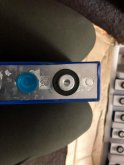Many people caution against buying grey market cells off Alibaba or Aliexpress. Many of us will do so anyways (trading potential cost savings for higher risk).
For those of us looking at grey market cells (i.e. sold by Chinese resellers, old OEM stock, B grade, no QR code, etc) from semi-reputable sellers, what information and test results should we be looking for (before we buy) to minimize the risk.
I know cells should be "well matched." I believe this means matched in 'capacity' (or voltage(?)) and 'internal resistance,' are these both things reputable resellers would test? Are there other ways in which cells should be 'matched'?
What would you/should I ask sellers?
For those of us looking at grey market cells (i.e. sold by Chinese resellers, old OEM stock, B grade, no QR code, etc) from semi-reputable sellers, what information and test results should we be looking for (before we buy) to minimize the risk.
I know cells should be "well matched." I believe this means matched in 'capacity' (or voltage(?)) and 'internal resistance,' are these both things reputable resellers would test? Are there other ways in which cells should be 'matched'?
What would you/should I ask sellers?




